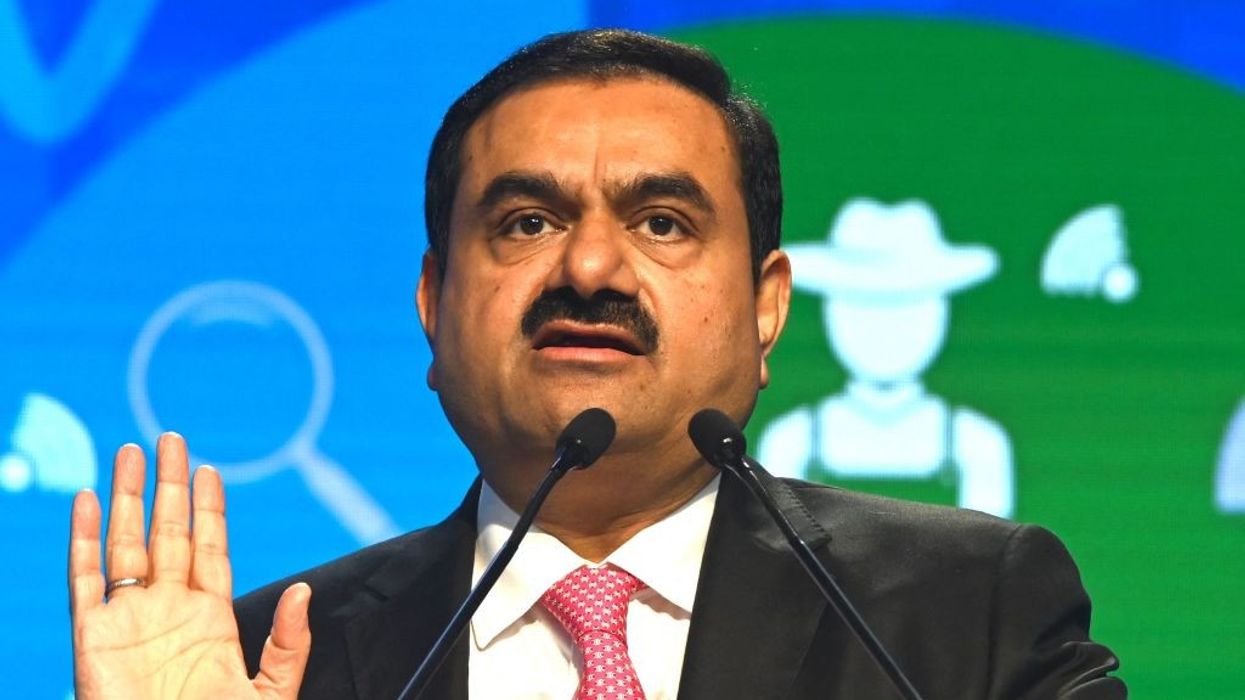India's Gautam Adani, the school drop-out turned billionaire who rose to become Asia's richest man, faces possibly the biggest challenge of his career after a U.S. short-seller cast doubts on his business practices, hammering shares in his companies and his reputation.
Adani, whose home state is Gujarat in western India, built his business empire from scratch after starting as a commodities trader. India's Prime Minister Narendra Modi hails from the same state and their relationship has come under intense scrutiny by Modi's opponents for years.
Adani's business empire grew rapidly and his wealth ballooned. His interests span ports, power generation, airports, mining, edible oils, renewable power and more recently media and cement.
He rose to become the world's third-richest person according to Forbes, with a net worth of $127 billion, trailing only Bernard Arnault and Elon Musk. Married to dentist Priti Adani, he has two sons, Karan and Jeet, both of whom are involved in the company businesses.
Despite his riches, the 60-year-old, who comes from a middle-class textile family, was far lesser known than other billionaires in a country where many inherit their wealth.
His business style was described as "very hands-on", according to one person with direct knowledge of his dealings.
As Adani's empire swelled, stocks of his seven listed companies surged - in some cases more than 1,500% in the last three years amid aggressive expansion. He denied allegations by Modi's opponents that he had benefited from their close ties.
In a 2014 interview with Reuters, when asked if he was friends with Modi, Adani said he had friends across the political spectrum but avoids politics.
He has said no one political leader is behind his success and when asked about Modi's use of Adani corporate planes during the interview, Adani said Modi "pays fully".
In recent years, the $220 billion Adani Group empire has attracted foreign investment - France's TotalEnergies TTEF.PA, for example, partnered with Adani last year to develop the world's biggest green hydrogen ecosystem.
More recently, Adani has taken a proactive approach to build his public image, giving interviews to local and foreign media.
Appearing in a popular Hindi TV show this month called the 'People's Court', Adani sat in a mock witness box inside a courtroom setup and answered questions about his conglomerate - offering an unusual level of scrutiny. He described himself as "a shy person" and credited the rise of his popularity in part to the political attacks he has faced.
Modi's government has denied allegations of favouring Adani.
"People got to know who Adani (was) because of constant targeting by Rahul ji during the 2014 elections and after that," Adani said, during the show, referring to opposition Congress party leader Rahul Gandhi.
Three weeks later, shares of his group's listed companies plunged on Friday, taking their cumulative losses to $48 billion this week. Short seller Hindenburg Research on Wednesday accused Adani's businesses of improper use of offshore tax havens and flagged concerns about high debt. Adani has called the report baseless, and said he was considering taking action.
REPUTATION CHALLENGE
Adani Group's website says its vision is to balance "growth with goodness" as it aims to build assets of national relevance and transform lives through self-reliance and sustainability.
Adani is no stranger to controversies. The most recent was months of protest by fishermen against the construction of a $900-million port in southern India's Kerala, in which he sued the state government and fishermen leaders. And in Australia, environmental activists for years protested against Adani's Carmichael coal mine project in Queensland on concerns about carbon emissions and damage to the Great Barrier Reef.
His latest challenge is how to deal with an unprecedented share price rout as the group's flagship firm Adani Enterprises ADEL.NS launched the country's biggest public secondary share offering this week, aiming to raise $2.5 billion.
The stock's price on Friday fell well below the offer price, casting doubts on its success.
Image guru Dilip Cherian told Reuters the Hindenburg Report - and its fallout - could carry a reputational risk for Adani but he could take action to limit that damage and reassure investors of the group's financial and assets strength and ensure the share sale is a success.
"In terms of the kind of stellar rise he has had this is a hazard," Cherian said.
Adani told India Today TV in December that people who were raising questions about the group's debt had not done a deep dive into its financials, without saying to who he was referring.
As the market rout played out on Mumbai exchanges, Adani was seen heading to a meeting at the federal power minister's office in New Delhi. It is not known what was discussed and Adani Group did not respond to a request for comment on Friday.
Adani Group's consolidated gross debt stands at $23.34 billion, Jefferies says. While Hindenburg alleged key listed Adani companies had "substantial debt" which has put the entire group on a "precarious financial footing", the Adani Group has repeatedly said its borrowings are manageable and no investor has raised any concern.
(Reuters)




